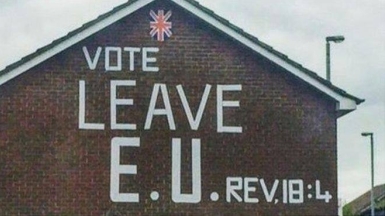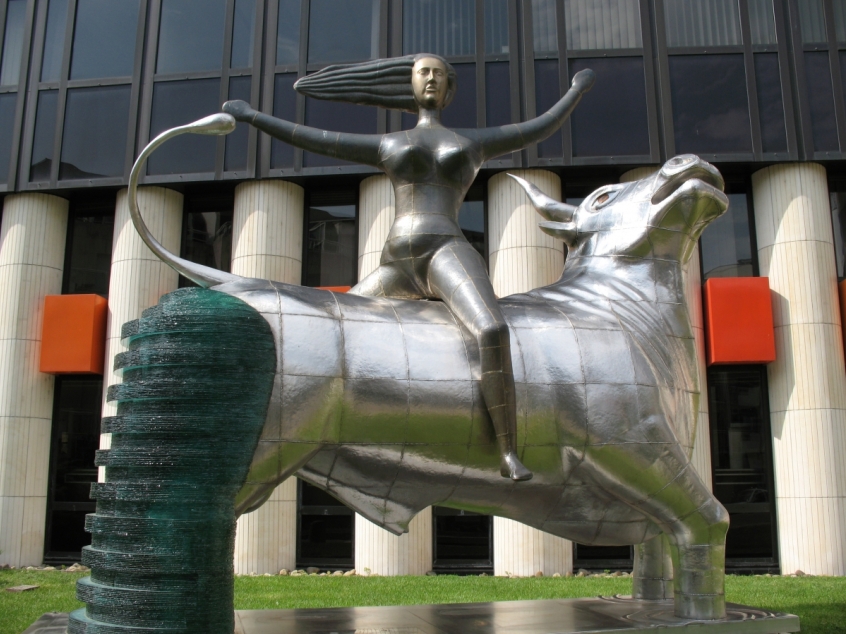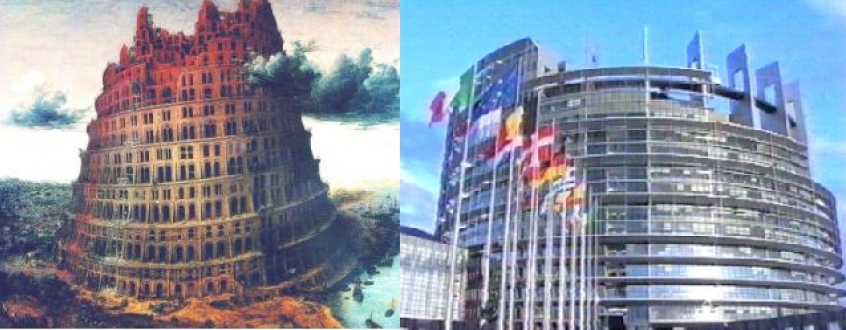Christians overwhelmingly voted in favour of leaving the European Union last Thursday.
Polling from Lord Ashcroft showed that nearly six in ten of those who identified as Christian voted for Brexit. This is significantly higher than the 52 per cent who voted for Brexit across the nation. It is particularly stark when compared to Muslim and Hindu voters, seven in 10 of whom voted to remain.

There are a whole host of reasons why this might be.
It may correlate with ethnicity and have little to do with faith. Although numbers have fallen, 93 per cent of Christians in the UK are white. By contrast two-thirds of British Muslims are from an Asian background. And Lord Ashcroft's poll showed that 67 per cent of Asians and 73 per cent of black people voted to remain compared to 47 per cent of white people.
Or it may correlate with age. The 2011 census showed that one in five self-identifying Christians in the UK are over 65. This is far higher than Muslims in the UK, nearly half of whom are under 25. And age has been highlighted as a clear indicator of voting patterns with 73 per cent of 18 to 24-year-olds voting to remain but only 40 per cent of over 65s.
But an undercurrent of Christian suspicion of the European Union has grown in the UK and it has nothing to do with immigration, sovereignty, the economy, democracy or any other typical voter concerns identified in the campaign.
A host of blogs, websites and claims of 'prophetic words' have fuelled a fear of the European Union's apparent spiritual side. A minefield of 'prophetic' websites, many of which border on the extreme end of conspiracy theories, warn of a supposed darkness in the EU project.

The influential Ellel ministries blog argued that "for deeply spiritual reasons" Christians should vote Brexit. On the morning after the vote under the title of "God has spoken", Peter Horrobin wrote the result was a "massive answer to prayer" and said: "God has acted to set the UK free from the external spiritual control of the European Union."
Similarly Julie Meyer, a worship leader at the International House of Prayer in Kansas City, said God's "eyes were on Europe". In a YouTube video entitled "prophecy over Europe" in 2012 she said:
"He's going to set the captives free and it's going to start in Britain. The Lord says, 'keep your eyes on Britain'.
"There is something greater coming to Britain. It's going to start in Britain...like a wildfire. You're part of the great story line Britain and its not over. It's getting bigger and bigger."
Horribin and Meyer are among a number of influential charismatic Christians to speak out against the EU. The focus of their concern is a belief that the EU has an evil spiritual power.
The central point of this wariness is around the European symbol of a woman riding a bull. The icon was chosen by the EU based on the Greek mythical story of Europa and adorns many EU official residences, buildings and documents.
But for some charismatic Christians the symbol is reminiscent of a biblical apocalyptic warning that spoke of a "woman sitting on a scarlet beast" in Revelation 17. According to Revelation, the woman on the beast is the mother "of the earth's abominations" and will be destroyed by God.

Others point to the EU's building in Strasbourg which they say is based upon Pieter Bruegel's painting of Tower of Babel in Genesis 11. Proponents say it symbolises an unfinished Europe but for some charismatic Christians it is symbolic of the EU's supposed rebellion against God. They were further riled when the EU promoted the slogan: "many tongues, one voice".
Much of this Christian suspicion of the EU originates in the United States and leading evangelicals including Franklin Graham, son of famous evangelist Billy Graham, called the result "historic" and a "glorious opportunity".
It is difficult to quantify to what extent these concerns from a small section of the Christian community influenced the 58 per cent of self-proclaimed UK Christians who voted to leave.
But it undoubtedly has played a part for some churches, even if they are fringe groups. Despite the desperate efforts of evangelical Christian Tim Farron, a vague notion that the EU was anti-Christian persisted among Christian communities, much to the horror of some Anglican bishops.
In Lord Ashcroft's poll 54 per cent of respondents identified as Christian. Whatever the reasoning, a majority of these Christians were suspicious of the EU and voted to leave. This failure to convince Christians of either the economic, spiritual or cultural benefits of the EU was disastrous for the Remain campaign and has changed the face of the UK forever.














